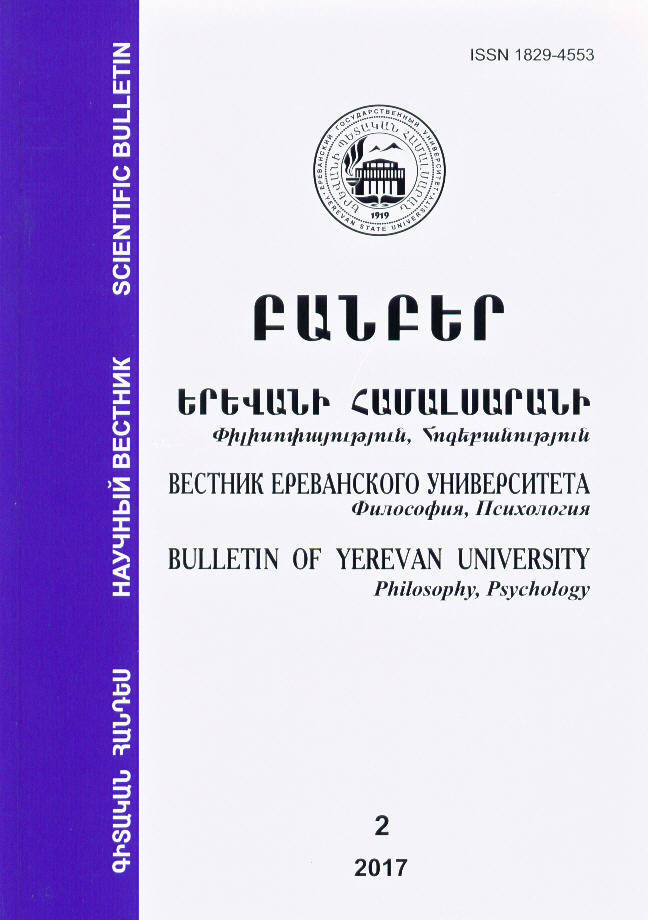The Problem of Identification in the Infomation Soceity
DOI:
https://doi.org/10.46991/BYSU:E/2017.8.2.053Keywords:
self-identification, information society, virtual identification, social realityAbstract
The main problem investigated in the article is the problem of selfidentification of the person in modern conditions of the latest technological developments and, in particular, the Internet and virtual space. Researchers note that the selfexpression in culture (socio-cultural space) and self-expression in the virtual space are fundamentally different, because in the first case, a person is forced to proceed from the realities of his gender, age, nationality, religion, time, etc., while the self-expression in the virtual space is deprived of all these limitations and therefore provides, at first glance, much freedom of self-identification. At the same time, we are aware that a large freedom of choice criteria of self-identification does not imply greater specificity, but on the contrary – the identity of greater uncertainty, because freedom in any of its manifestations involves greater uncertainty than concreteness. The article highlights the contradictory nature of the process of self-identification in the present conditions, because, on the one hand, the virtual space and the latest technological tools are becoming more widely available, and on the other hand, the increasing urgency acquires traditional mechanisms of human identity – culture, history, religion, traditions and so on. As a consequence, we have a modern man with an uncertain, chaotic, eclectic identity, which is also manifested in the social reality, making it more uncertain and aimless.
Downloads
Published
Issue
Section
License
Copyright (c) 2021 Bulletin of Yerevan University

This work is licensed under a Creative Commons Attribution-NonCommercial 4.0 International License.

